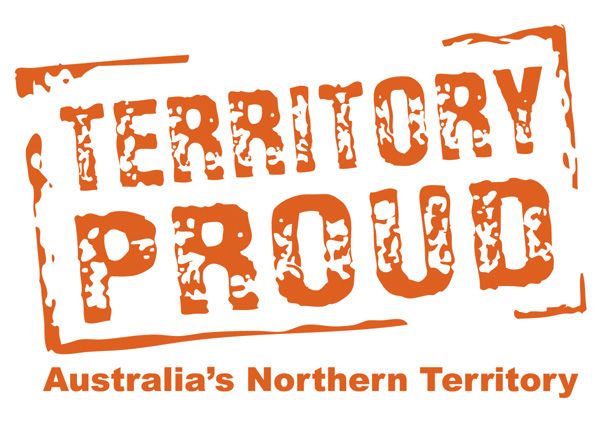A Guide To Choosing Flowers For A Funeral
Saying farewell to a loved one is never easy, and flowers play a quiet yet powerful role in honouring a life, offering comfort, and expressing emotions we often can’t put into words. Whether you’re organising a tribute or sending condolences, knowing how to choose appropriate funeral flowers can feel overwhelming. With the right guidance, you can select arrangements that are meaningful, respectful, and suited to the occasion. This guide will walk you through the key considerations when selecting funeral flowers, while highlighting how professional services like funeral floral arrangements in Darwin can help create personalised tributes for a fitting farewell.
Understand the Meaning Behind Flowers
Choosing funeral flowers isn’t just about picking something pretty—it’s about expressing emotion and paying tribute through the symbolism of each bloom. Different flowers carry different meanings, making it important to understand what they represent before including them in an arrangement. A professional florist can help match these symbolic meanings to the sentiment you wish to convey, creating a floral tribute that speaks volumes.
- Lilies: Symbolise purity, peace, and the soul’s return to a state of innocence.
- Roses: Represent love, respect, and remembrance, with different colours conveying slightly different emotions (red for love, white for reverence, yellow for friendship).
- Chrysanthemums: Signify loyalty and devotion, and in many cultures, they are specifically associated with mourning.
- Orchids: Express eternal love and strength, making them a graceful addition to funeral arrangements.
Consider Cultural & Religious Traditions
In today’s culturally diverse world, understanding religious and cultural customs around funeral flowers is essential to offering a respectful and meaningful tribute. Different traditions have distinct guidelines on what’s considered appropriate, and choosing flowers thoughtfully shows both care and cultural awareness.
- Buddhist ceremonies: White flowers are appropriate; avoid red.
- Hindu ceremonies: Garlands and loose flowers are typically used instead of formal arrangements.
- Christian services: A wide range of flowers is usually acceptable, with lilies and roses being particularly popular.
- Jewish funerals: Flowers are often not used at the funeral but may be appropriate when sending sympathy arrangements to the family afterward.
Choose Flowers With Personal Significance
Adding a personal touch can make a floral tribute even more meaningful. Consider selecting flowers that had personal significance to the deceased—perhaps a favourite flower, colour, or a bloom associated with a special memory. Native Australian flowers can also create a uniquely local and personal tribute, reflecting the natural beauty of the region.
- Favourite blooms or colours: A meaningful nod to the person’s personality or preferences.
- Birth flowers: Each month has a designated flower that can add symbolic significance.
- Native flowers: Waratahs, kangaroo paw, or banksias can reflect the local landscape and add a distinctively Australian touch.
Select the Right Arrangement Style
Funeral flowers come in various forms, each suited to a particular purpose. Choosing the right type of arrangement helps ensure your tribute fits the setting and your relationship to the deceased. A professional florist can guide you in selecting the best style for your situation.
- Wreaths: Symbolise eternal life and are often placed at the graveside or near the casket.
- Casket sprays: Large arrangements that adorn the casket, typically chosen by close family members.
- Standing sprays: Displayed on easels near the casket or ceremony site, offering a striking tribute.
- Bouquets and baskets: Appropriate for sending directly to the family’s home or to the service as an expression of sympathy.
Be Mindful of Practical Considerations
Beyond meaning and beauty, practical aspects play a key role when selecting funeral flowers. A local florist is invaluable here, ensuring that your arrangements are fresh, delivered on time, and suited to the season and venue. They can also suggest alternatives if a particular flower is unavailable due to seasonality.
- Delivery coordination: Ensuring timely delivery to the funeral home or service location.
- Seasonal availability: Selecting flowers that are in season to guarantee freshness and longevity.
- Longevity: Choosing hardier blooms, particularly for outdoor services or hot climates.
- Allergy awareness: Opting for low-pollen flowers to avoid discomfort for attendees.
Opt for Eco-Friendly Choices
Many Australians are becoming more mindful of the environmental impact of events, including funerals. Eco-friendly floral choices not only honour the deceased but also demonstrate care for the planet. A knowledgeable florist can recommend options that align with sustainable practices.
- Native flowers: Require less water and travel, reducing environmental impact.
- Potted plants: Can be taken home as a lasting reminder or replanted in memory of the deceased.
- Biodegradable arrangements: Avoid using floral foam and non-recyclable materials.
- Minimalist designs: Focusing on simplicity can reduce waste while still being beautiful.
Lean on Professional Customisation
Working with a professional funeral florist offers significant advantages, especially when you want to create something meaningful and tailored. Florists can incorporate specific flowers, personal items, or colour schemes that reflect the personality and story of the person being honoured.
- Custom designs: Tailored to reflect hobbies, achievements, or personal symbols.
- Personal mementos: Integrating keepsakes such as ribbons, photos, or small objects into the arrangement.
- Thematic arrangements: For example, using colours associated with a favourite sports team or meaningful cause.
- Family coordination: Helping coordinate with family members to create cohesive, unified floral displays.
Seek Guidance for Sympathy Arrangements
When sending flowers directly to grieving families, the approach is a little different from flowers placed at a service. Sympathy flowers are meant to comfort, not overwhelm, and a professional florist can help you select arrangements that offer quiet support and compassion.
- Small bouquets or baskets: Thoughtful, understated expressions of care.
- Potted orchids or peace lilies: Long-lasting plants that provide comfort in the weeks after the funeral.
- Soft, gentle colours: Whites, pastels, and muted tones are often preferred for sympathy arrangements.
- Personalised message cards: Adding a meaningful note can make the gesture even more heartfelt.
Let Us Help You Choose the Flowers Appropriate for in Darwin
At Territory Funerals, we understand how meaningful funeral flowers can be in honouring a loved one’s life. Our funeral floral arrangements service in Darwin is dedicated to helping you create respectful, personalised, and beautifully crafted tributes that reflect your sentiments and the memory of those you’ve lost. Explore our floral options, or get in touch for expert guidance on custom arrangements. We are here to support you in creating a fitting farewell—reach out today to discuss how we can help.











